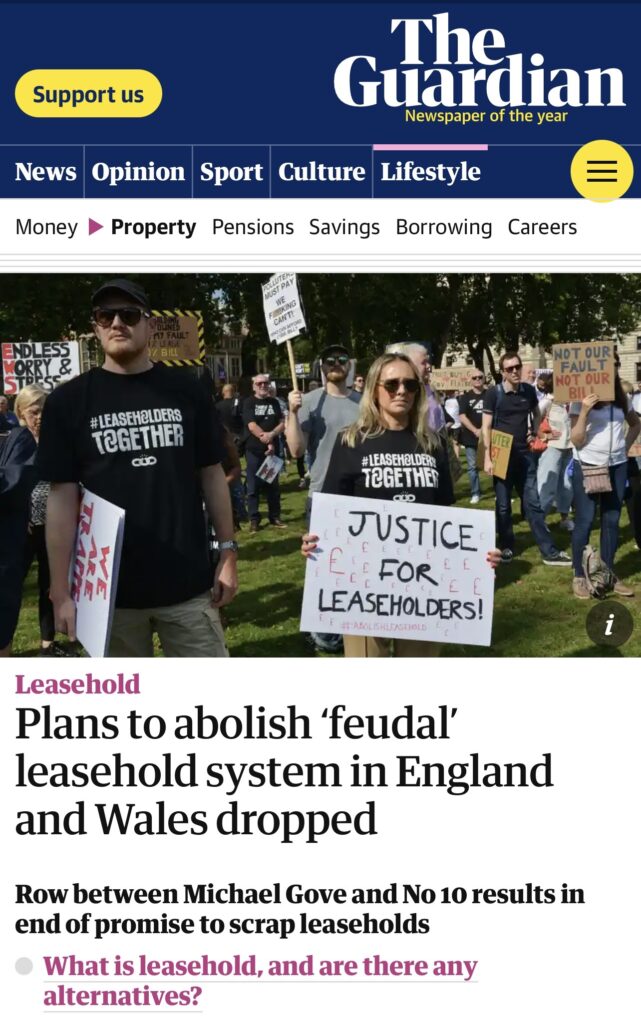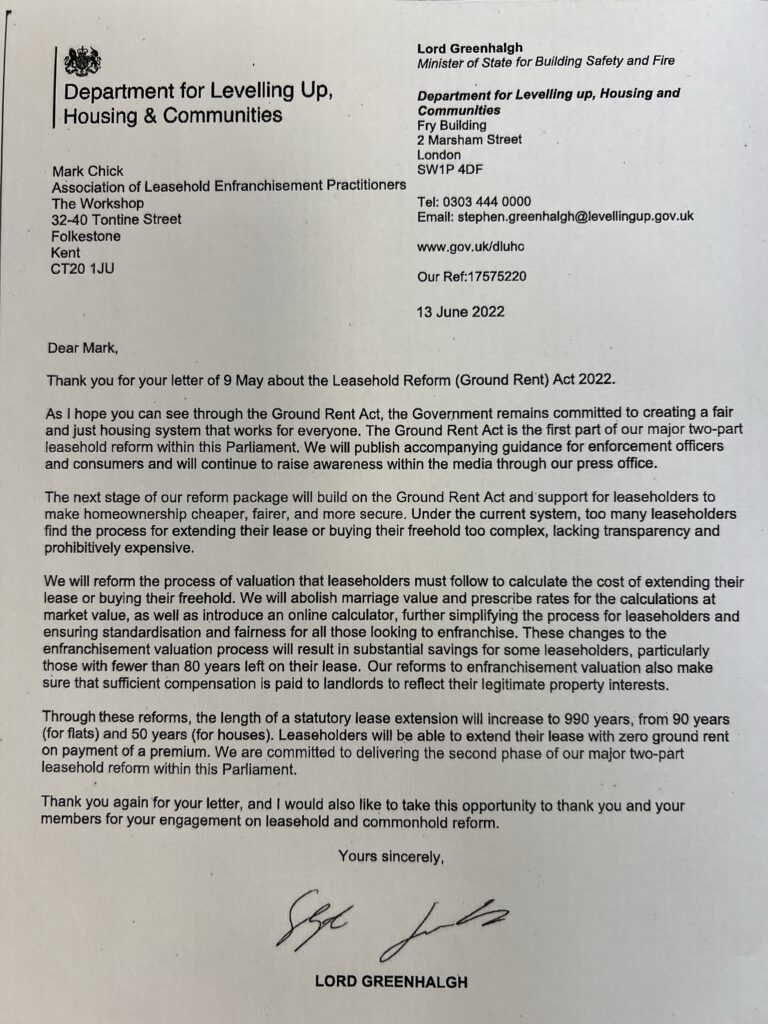The 2022 Act comes into force on 30th June 2022 and bans ground rent for most types of new leases – So, what will this mean in practice?
Is the Act in force yet?
The Leasehold Reform (Ground Rent) Act 2022 received Royal Assent on 8th February 2022 and will come into force on 30th June 2022.
There is a carve out for the retirement sector who have until April 2023 to get used to the idea of leases without ground rents on the basis that in some retirement developments a ground rent is used to suppress the maintenance costs and reduce the service charge.
If I buy a new flat once the Act is in force, will I pay a ground rent?
There will be no ground rent for brand new leases (e.g. new build leases of flats and houses).
The one short term exception is where a contract to grant the lease was granted before the Act comes into force. We might expect therefore to see some completely new leases validly granted with a ground rent for a little while after commencement, but only under this exception.
Once in force the Act will effectively ban ground rent for all brand-new leases, but otherwise any lease of a newly built flat or house will have to be at a zero rent.
The Act also contains deeming provisions so that even if a new lease is drafted with a ground rent that applies during what is called the ‘prohibited period’ (essentially the extended term of any new lease) that the rent will be deemed to be zero, even if the lease says otherwise.
Are there any situations when can a lease still include a ground rent after the Act comes into force?
Yes, and this where the lease is a voluntary renewal of an old lease.
Where the new lease is a voluntary renewal of an existing lease, there can be a ground rent, but this can only continue at the old level if ground rent and then, only during what would have been the remaining term of the old lease.
The detail on this is set out in Section 6 of the Act.
This will have a big impact on those freeholders who like to keep a ground rent on any voluntary extension of a new lease and will drive up the cost of voluntary renewals.
A worked example of how this might work in practice is as follows:
If a lease has a term of 99 years from 1980 and expires 2079, and a deal is done to extend that lease by another 100 years so that it runs out in 2179, then the new lease can keep the old ground rent (whatever that was) until 2079, but after that any new rent must be zero.
The old rent cannot be increased and must remain exactly as it was under the old lease.
What about other types of lease extension?
Any extension under statute will be at a zero rent in any event, as this is what the 1993 Act prescribes and the Act makes plain that this type of extension is a ‘permitted extension’.
There are exemptions for ‘Islamic finance’ type arrangements and also ‘shared ownership’ leases under which the tenant’s proportion must be at zero rent but that the landlord / housing provider may charge whatever rent they would normally charge in respect of the rental element.
What if a landlord does not comply with the Act once it is in force?
The Act is quite specific that the local authority weights and measures department has responsibility for enforcement and that fines can be imposed. The minimum fine is £500 and the maximum £30,000.
In addition, if a ground rent is collected when it should not be once the Act is in force then the rent must be repaid to the leaseholder with interest. An example would be if a new lease is erroneously granted with a rent provision in the extended lease term – or at a rent that exceeds the old rent.
What is the impact of the Act likely to be?
In an earlier version, the Act included an obligation to inform the tenant about the existence of the Act and its provisions. These provisions did not make it into the final version of the Act
However, the very existence of the Act itself, once in force, will surely push more leaseholders to ask for a lease at a zero rent on extension and / or go down the route of a statutory extension if this is not offered.
All this means that the writing really is on the wall for ground rent.
Some other thoughts about the Act and further possible leasehold reforms
Once in force, this Act will be a big step forward towards the Government’s proposed agenda for change in this area.
Ending ground rent for newly built leasehold flats and houses will go a long way towards avoiding any repeat of the so called ‘leasehold scandal’ where doubling of ground rents on newly created leases created an iniquitous situation for homeowners who had been sold leasehold houses with an escalating ground rent.
However, this Act does not deal with the banning of the use leasehold on an ‘unnecessary’ basis as a tenure for houses, as was originally promised by the then housing minister Sajid Javid. That question together with the prospect of wider reform is still ‘in discussion’ and it remains to be seen how and when such further changes will be acted upon by the Government.
This is of course all part of a wider programme to make leasehold unattractive for new properties and eventually, to pave the way for commonhold for new properties.
Although the new law will abolish ground rents on new build leases and during any extended lease term, it does not affect existing leaseholders.
Leaseholders who face high ground rents and want to get rid of them will still need to follow the statutory leasehold enfranchisement process.
I look forward to seeing what the further detail of the Government’s plans will be on the topic of broader leasehold reform.
The Queen’s Speech on 10th May 2022, did not set out any specific plans for any new Acts on this topic, but simply re-stated the Government’s general commitments to the reforms. As to the timing of any further legislation we will have to wait and see, but there is no immediate indication of anything forthcoming in the current session of Parliament, although that does not mean that there might not be something forthcoming… as ever, we will have to wait and see.
Mark Chick

